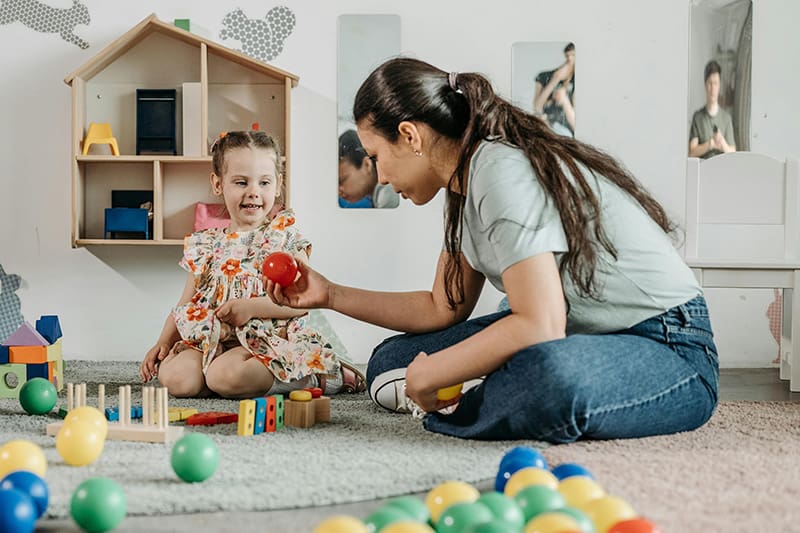The Anatomy of Speech Disorders
Language develops naturally, starting when the child is just an infant. In order for a child to develop language, he or she must be able to effectively see, hear, understand and remember, and process any information he or she absorbs to make sense of it.
Although this is a natural process, some children have difficulty processing this information because of a language disorder that also develops from a young age. This statistic may shock you: 1 out of every 20 children have symptoms of a language disorder. The good news is that this statistic can be significantly improved if parents of children with communication disorders realize the effectiveness and positive lasting effects of speech and language therapy.
In certain cases, speech and language disorders can be symptoms in children with other developmental problems such as autistic disorders, hearing loss, mental retardation, and learning disabilities. In other less common cases, a speech or language disorder could be caused by damage to the brain. However, in most cases, neither cause is the reason for some children’s speech and language difficulties – they are simply learning hurdles that can be overcome with concentrated therapy sessions and positive reinforcement in the home.
Signs of a Child’s Speech Difficulties for Parents to Notice
Of course, each child’s specific speech or language difficulty has unique symptoms, which can also uniquely manifest themselves in different ways depending on the child’s personality, circumstances and upbringing. However, in order to assess if your child is struggling with a speech disorder, there are some common symptoms that you can watch out for as his or her parent. If any of the following (or all of them) are evident in your child’s behavior, it is important for you to contact a speech therapist for an evaluation:
- Hard time understanding other people
- Difficulty in following simple directions
- Inability of putting words into sentences (at age five)
- Repeated and frequent difficulty in thinking of a word
- Word deletion
- Repetition of certain words or phrases
- Using tenses incorrectly
Specific Language Impairments
A very common speech disorder is specific language impairments (SLI) which can have many causes. However, it is important to understand the specific symptoms of SLI and to be able to recognize these red flags in your child’s speech.
A specific language impairment (SLI) is when a child has difficulty in constructing some parts of speech in language. Common characteristics to consider are issues with nouns, verbs, adjectives, adverbs, conjunctions, auxiliaries, articles, etc. Common characteristics of SLI seen in children are absence of words such as articles (for example ‘the’ or ‘a’), absence of tenses, overuse of pronouns such as ‘him,’ ‘her,’ ‘me,’ as well as the underuse of prepositional phrases (‘above,’ ‘until,’ ‘inside’).
Sometimes, it is difficult to differentiate children who have permanent language problems (SLI) from those who have a disorder with similar symptoms, such as Slow Expressive Language Development (SELD); this is why it is important to consult with a certified and trained speech-language pathologist.
Causes for Specific Language Impairments (SLI)
There are many potential causes of SLI:
- Intellectual deficits that are specific to cognitive processes
- Auditory processing deficit, which could cause the inability to identify specific sounds in speech (phonemes)
- Poor short-term memory for speech sounds
- Language module deficits
Other Speech Disorders: A Short Summary
There are many speech disorders that a child can develop. Common disorders seen are Stuttering, Cluttering, Apraxia, speech sound disorders.
The following is a short description of some of the most common speech disorders:
Stuttering: Signs of stuttering include repeating words, stumbling on words, hesitating between words and substituting one sound for another, or inability to pronounce certain sounds.
Cluttering: Speech cluttering involves inputting many breaks in the normal flow of speech, resulting in disorganized speech.
Apraxia of Speech: Apraxia of speech involves an inconsistency with articulation, oral motor deficits, and increased errors in speech with elongated words or phrase lengths. The result is difficulty producing speech due to motor planning or coordination problems.
Speech Sound Disorders: Speech sound disorders, as the name suggests, involves difficulties in producing certain sounds and sound patterns. Signs of this disorder include substituting incorrect sounds, deleting certain sounds, and adding other sounds incorrectly into speech.












